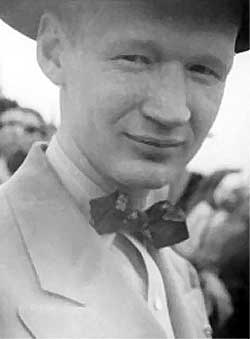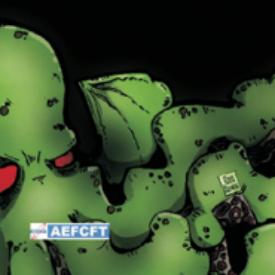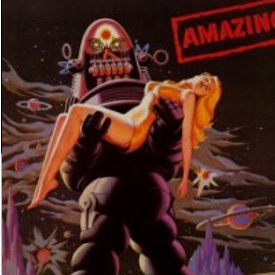 I don’t want to destroy the damsel in distress. I don’t want to destroy the sleeping beauty. Or the femme fatale. Or the pollyanna. Or the ditz. Or the girl next door. I watch attempts to ban them warily, though I know the intentions behind the act are good. I know we’re tired of these tropes. I’m tired of these tropes. I tired of paying for books and movies in the hopes that maybe, maybe the one or two prominent female characters will command a real, meaty story. They almost never do.
I don’t want to destroy the damsel in distress. I don’t want to destroy the sleeping beauty. Or the femme fatale. Or the pollyanna. Or the ditz. Or the girl next door. I watch attempts to ban them warily, though I know the intentions behind the act are good. I know we’re tired of these tropes. I’m tired of these tropes. I tired of paying for books and movies in the hopes that maybe, maybe the one or two prominent female characters will command a real, meaty story. They almost never do.
I want badass grandmas and snotty teenyboppers who take up sword and shield, courteous, pastel assassins and studious, unlovely princesses. I want our storytellers to stop confining themselves to our present, sparse handful of stock characters; I want them to build stories around these girls and women instead of slotting them into the margins in roles they shrug at as “good enough.” I want the full spectrum of character and story explored, our current notions of who can be what exploded. I want honest-to-god creativity.
 But I don’t want to shove our worn (though not worn out) stock heroines and villainesses into the back of the attic for good. I see these arguments crop up with fair frequency–even amidst a cast of varied female characters, the one damsel in distress will be pointed out and denigrated. The Pollyanna is so boring, especially when compared to the strapping young warrior princess. The femme fatale who uses her dangerous curves is so expected. Obviously, I understand this fan fatigue. It’s most of what we’ve seen for years.
But I don’t want to shove our worn (though not worn out) stock heroines and villainesses into the back of the attic for good. I see these arguments crop up with fair frequency–even amidst a cast of varied female characters, the one damsel in distress will be pointed out and denigrated. The Pollyanna is so boring, especially when compared to the strapping young warrior princess. The femme fatale who uses her dangerous curves is so expected. Obviously, I understand this fan fatigue. It’s most of what we’ve seen for years.
But banning them will not work. And making them out to be “unworthy” portrayals of women is short-sighted in the extreme. First off, it often boils down to a simple hatred of traditionally feminine traits–nurturing, sweetness, shyness, placidity–and while I don’t want our fictional women confined to those norms, nor do I want to replace them with traditionally masculine traits that are, in the act, tacitly acknowledged as superior. There’s nothing wrong with being sweet and kind and passive. There’s not even anything wrong with loving shoes and boys and disdaining homework, regardless of your nerdy disdain for Those Popular Bitches.
 That’s the heart of it, for me–these are legitimate stories to tell, even if we’re kind of sick of them. We need to expand and tell all kinds of stories, not limit ourselves to a piddling little collection of archetypes. But the thing is, that goes both ways. And while I admire the zeal of fandom’s current tide of feminism, I see, at times, a pendulum swinging to the other extreme. Not all the time, mind you, but when I encounter, “Oh my god, she’s SUCH a bore, she just sits there all day,” in response to, say, the classic Disney movies, I cringe a little. It’s a valid complaint (it’s not like those first Princess movies were revolutionary), but can we respect that these were heroines with their own stories? Can we respect that their sweetness and light are, in fact, positive character traits and that they had their own kind of strength? It’s not okay that that was the only kind of story that could be told. I’m not saying that. But I think, in our fervor, we forget to respect all kinds of portrayals, and moreover that these were all thousands of little girls had to sustain themselves with for many years. We forget that spitting on the past will not fortify our future. We forget that the femme fatale, the pollyanna, the sweetie-pie princess and the damsel in distress deserve a place at our table alongside a new breed of heroines.
That’s the heart of it, for me–these are legitimate stories to tell, even if we’re kind of sick of them. We need to expand and tell all kinds of stories, not limit ourselves to a piddling little collection of archetypes. But the thing is, that goes both ways. And while I admire the zeal of fandom’s current tide of feminism, I see, at times, a pendulum swinging to the other extreme. Not all the time, mind you, but when I encounter, “Oh my god, she’s SUCH a bore, she just sits there all day,” in response to, say, the classic Disney movies, I cringe a little. It’s a valid complaint (it’s not like those first Princess movies were revolutionary), but can we respect that these were heroines with their own stories? Can we respect that their sweetness and light are, in fact, positive character traits and that they had their own kind of strength? It’s not okay that that was the only kind of story that could be told. I’m not saying that. But I think, in our fervor, we forget to respect all kinds of portrayals, and moreover that these were all thousands of little girls had to sustain themselves with for many years. We forget that spitting on the past will not fortify our future. We forget that the femme fatale, the pollyanna, the sweetie-pie princess and the damsel in distress deserve a place at our table alongside a new breed of heroines.
I want us to embrace storytelling in its true fullness. I want to be able to love Snow White and Asha Greyjoy equally. Anything less is further confinement wearing a new face.











Recent Comments